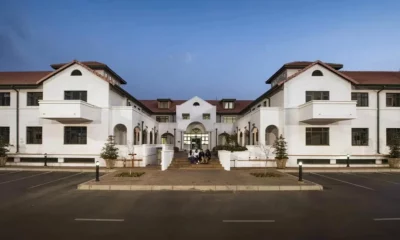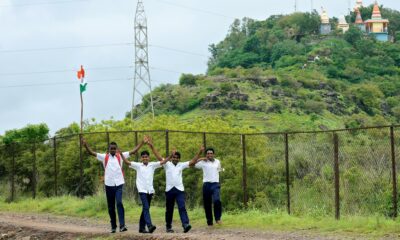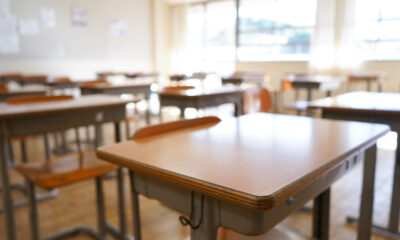News
Who’s to Blame for School Rage? Unpacking the Crisis in South Africa’s Classrooms

Who’s to Blame for School Rage? Unpacking the Crisis in South Africa’s Classrooms
South Africa’s classrooms are becoming warzones. From knife attacks and gang activity to teachers being assaulted and learners setting schools alight, the growing trend of “school rage” has shaken parents, educators, and communities alike.
The question everyone is asking: who’s to blame?
Violence Isn’t Born in the Classroom
Education psychologist Mhlari warns against looking only at what happens inside schools. “What are these kids exposed to within their communities holistically? Their homes, communities, schools? When that is determined, then we can start building an informed intervention,” she explains.
Children who lash out often carry trauma from home neglect, abuse, or exposure to violence. Without support, this spills into aggression at school. Add to that untreated mental health issues such as depression, anxiety, or conduct disorders, and the classroom becomes a pressure cooker.
Broken Homes, Broken Trust
Many experts point to South Africa’s strained family structures. Remoneilwe Diale, of The Lady of Peace Foundation, says the crisis is “rooted in broken homes, absent parenting, social pressures, and a society where violence has become normalised.”
Social media has only poured fuel on the fire, turning fights into viral entertainment. What once happened in the shadows of the playground is now broadcast on TikTok.
Teachers on the Frontline
For teachers, the crisis feels overwhelming. SA Democratic Teachers Union’s Nomusa Cembu says violence in schools reflects the wider social, political, and economic struggles of communities. “The culture of violence is high in South Africa. It should not come as a surprise to see it among pupils,” she notes.
Educators are calling for stricter enforcement of school codes of conduct and stronger collaboration with parents. But with limited mental health resources, many schools simply react to violence instead of preventing it.
A Violent Nation Raising Violent Kids
The broader context is grim. South Africa ranks among the most violent countries in the world. Willem Els of the Institute for Security Studies puts it bluntly: “We are number three in Africa, number seven in the world and many of those crimes are violent crimes.”
Children, he says, are growing up without positive male role models, often in single-parent households. Gang leaders and criminals become their reference points instead of fathers or mentors. “If the home fails and the state fails, children turn to the streets,” Els warns.
Everyone Shares the Blame
Education activist Hendrick Makaneta calls school violence a “complex, multifaceted problem” that requires a collective response. Parents must instil discipline and values. Schools need prevention programmes and counsellors. Communities must take responsibility for guiding young people. And authorities, critics argue, must step up with stronger protection for both pupils and teachers.
As Diale warns, “Blaming only the pupils will not solve the problem. Everyone must take responsibility. If we stand by and do nothing, we risk losing an entire generation to violence.”
{Source: TheCitizen}
Follow Joburg ETC on Facebook, Twitter , TikTok and Instagram
For more News in Johannesburg, visit joburgetc.com


























